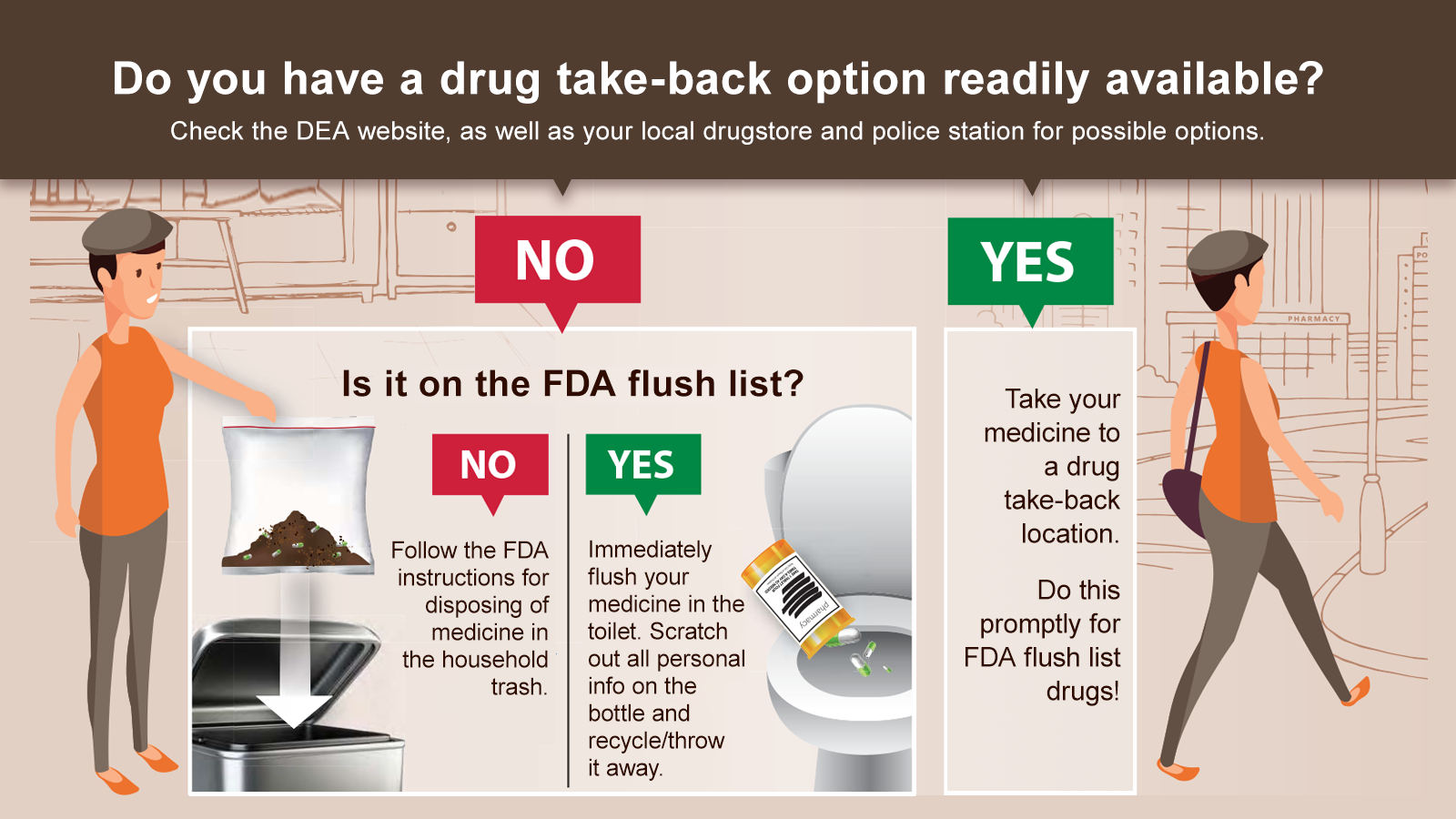
Many people do not know how to properly dispose of their antibiotics once they are done with them. This is partly due to there being little to no education on the matter. Patients are given these medications with no directions on where to take the antibiotics and dispose of them, or what not to do with them. When these medicines are improperly disposed of, they can end up in the sewer system. There, they have the opportunity to combine with other antibiotics and create superbugs that are difficult to treat. Each year, “…drug-resistant bacteria infect more than 2 million people nationwide and kill at least 23,000,” (CDC/NIH, 2014). This new strain will then infect patients and can spread more easily, while many of the treatments that we use now will be ineffective against it. Imagine going to the hospital for what you think is just strep throat, only for the doctors to tell you that you contracted an infection that current medicine cannot treat.

Getting your local community involved in educating which drugs can be flushed down the toilet, and which cannot and thus need to be taken somewhere to be properly disposed of can greatly help curb the creation of these superbugs. We can ask for there to be designated drop-off spots for those medications that need it. This can help to stop the mixing of DNA from the multiple different bacteria, stopping the resistance from forming. The U.S. Food and Drug Administration has a list of drugs that need to be properly disposed of and which can be safely dumped on their website (Center for Drug, 2020).
Everyone can also ask their providers about whether or not the antibiotic is the most appropriate for your illness. Antibiotics do not aid in viral infections, meaning that those medications will not help cure the common cold or the flu. If providers can cut back on what medications are prescribed, it saves the effectiveness of the drug. According to the United Nations, many studies have already linked the misuse of antibiotics in humans and agriculture over the last several decades to increasing resistance (United Nations, 2017).
By pledging to try to limit the amount of antibiotics that we are prescribed, we can lower the risk of even more, deadlier superbugs being created. If you have a virus, ask your provider to not prescribe you antibiotics. This stops not only the creation of them in patients' bodies, but also stops the spread of them through improper disposal.
Look for drop-off locations in your area. Make a vow to use them when you need to. Inform others of the drop boxes, so that they may be aware. A little step can go a long way, especially when it comes to your health and the health of others.

By, W. (n.d.). DENR flags 'superbug' threat from improper disposal of antibiotic waste. Rife Money Fever. Retrieved February 6, 2022, from https://rifemoneyfever.com/2021/11/28/denr-flags-superbug-threat-from-improper-disposal-of-antibiotic-waste/#:~:text=THE%20Department%20of%20Environment%20and%20Natural%20Resources%20%28DENR%29,%E2%80%9Csuperbugs%E2%80%9D%20that%20resist%20treatments%20available%20on%20the%20market.
Center for Drug Evaluation and Research. (2020, October 1). Disposal of unused medicines: What you should know. U.S. Food and Drug Administration. Retrieved February 6, 2022, from https://www.fda.gov/drugs/safe-disposal-medicines/disposal-unused-medicines-what-you-should-know
Fighting the resistance: Superbugs and antibiotic ... - MCW. (n.d.). Retrieved February 6, 2022, from https://www.mcw.edu/-/media/MCW/Education/DRIVE/DRIVE_Darrah_BlogPost.pdf?la=en
U.S. Department of Health and Human Services. (2019, October 28). Stop the spread of Superbugs. National Institutes of Health. Retrieved February 6, 2022, from https://newsinhealth.nih.gov/2014/02/stop-spread-superbugs
United Nations. (n.d.). Careless disposal of antibiotics could produce 'ferocious superbugs,' un environment experts warn | | UN news. United Nations. Retrieved February 6, 2022, from https://news.un.org/en/story/2017/12/638352-careless-disposal-antibiotics-could-produce-ferocious-superbugs-un-environment
Wolfe, J. (2014, April 2). Antibiotic resistant bacteria infections on the rise in American children. Opposing Views. Retrieved February 7, 2022, from https://www.opposingviews.com/health/antibiotic-resistant-bacteria-infections-rise-american-children
